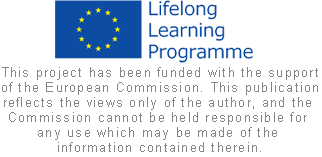DIGITAL REPUTATION
Your reputation has at least two dimentions: the way we perceive ourselves and the way others think and write about us. Simple as it is the definition describes online reputation as well. No matter how active internet user you are reflection about online identity is crucial for your online presence.
Managing online reputation is about gaining control over digital identity, dogital picture of a person, a group or a company in Internet. Usually linked with SEO - Search Engine Optimization and a ranking of the search results.
Before you hire a professional company to take care of your online presence think ahead of what you can do yourself. Many principles will concern security issues and thus will secure your data and information and will contribute to maintaining right publishing patterns in various services.
In terms of reputation and protection Internet as a social space can be descibed in four main cathegories:
- Durability: informacje zapisane są "na zawsze" i mogą być dostępne w dowolnym momencie. Oznacza to, że zdjęcie, które raz opublikowałeś online jako nastolatek, będzie prawdopodobnie dostępne za 10 lat. Podobnie z blogiem, który zacząłeś pisać dawno temu, i porzuciłeś po kilku notkach.
- Searchability: informacje online na niemal każdy temat są łatwe do wyszukiwania - podobnie informacje na Twój temat.
- Copiability: kombinacja “ctrl c” “ctrl v”daje możliwość zmiany kontekstu informacji, a tym samym - zmiany ich znaczenia.
- Invisibility of recipients: pasywni użytkownicy, którzy przedkładają czytanie nad kreowanie cyfrowej zawartości, oraz ci ludzie, z których obecności nie zdawałeś sobie sprawy w momencie publikowania informacji.
Digital Image and Recruitment
According to Cross-Tab research done in 2009, headhunters and recruitment agency when searching for information about potential employees, analyse in details all available information that can be found online. If the online image is not adequate they simply reject the job application. For instance, in Germany 78% would reject an applicant because of inappropriate comments online, 44% because of improper photos or films. In the same time only for 17% of recruitment agency not sufficient communication skills is important criterion. 43% European recruitment offices check the online reputation before sending the invitation for interview to potential employees. Now you can see that our online presence may have direct influence on out chance for hiring or promotion.
Strength of online contacts
Our online contacts constitute our social capital. People we know and have in our social network, support us (in some cases unconsciously) in accessing interesting information, links to articles, contacting with other people, etc. Such social investment develops (indirectly) our online reputation.
E-portfolio is one of the ways to manage our digital identity as it allows for creating personal and professional webpage that can be dynamically updated according to our carrier and current responsibilities.
Your digital image
Several factors have influence on your online identity. Most of them are easy to manage and shape and you should definitely use this possibility to develop your online image.
- Avatars and photos
Sharing photos on the Web is one way of creating online identity. Photos from holiday tell a lot about how you spend free time. Have you ever thought what such photos can tell your (potential) employer? It is worth to pay attention not only to text but also photos that go online with our surname. Avatars are graphics or photos that represent you on the web. Avatars usually have influence on the first impression that somebody has about us. You should pay attention how you create your avatar as it should be esthetical and coherent with you as far as possible. Before you create the avatar, consider the context in which it will be shown and the target group. Instead a funny photo of your cat, think rather about interesting photo of your person and use it consequently in different online services. It would be easy to identify you and to link different digital footprints with your activities. Consider if a photo from holiday with a drink in the bar is appropriate for instance in your university online network or job seeking services.
- Nicks / login
In the web we use different nicks that cover our real names. Think twice before you create an account or e-mail address. Words used in your login/nick may tell a lot of details about you. Using several e-mail addresses e.g. One for job related contacts and one for your personal issues, is a regular practice.
Domain used is also significant. E-mail address e.g. john@john.com may be an evidence of your high digital competence. The same nick increases our level of identification on the web.
- Language used
Pay attention to style and accuracy of communication online. Grammar and writting mistakes are interpreted as you simply don't care about the person you contact with.
Use language correction tool and speller to check your text against language rules. Read your text twice, before you publish it online.
Remember that in the moment of publishing/ sending your text/message it will be your digital footprint and will be searchable for very long period.
- Webs you like
Pay attention to the type of information you link and recommend others in your social network. Think twice before you click on "I like it" button on Facebook. Based on type of your favourite information, others may create a wrong image of you which may influence on e.g. decision of you potential/actual employer.


